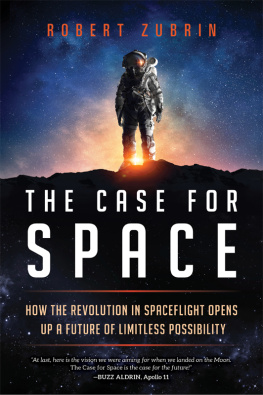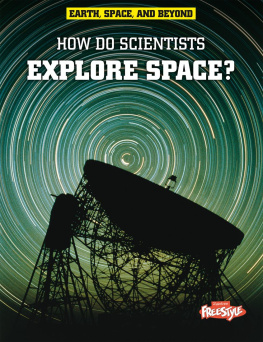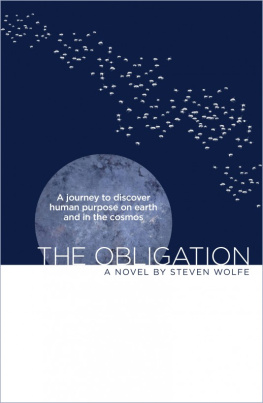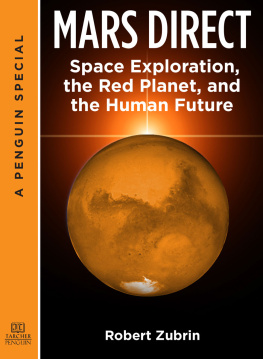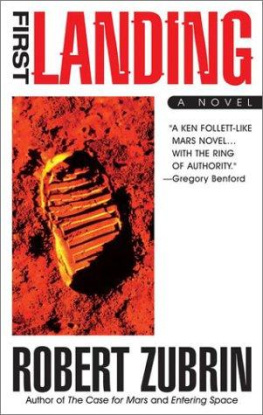Robert Zubrin - The Case for Space
Here you can read online Robert Zubrin - The Case for Space full text of the book (entire story) in english for free. Download pdf and epub, get meaning, cover and reviews about this ebook. year: 0, genre: Romance novel. Description of the work, (preface) as well as reviews are available. Best literature library LitArk.com created for fans of good reading and offers a wide selection of genres:
Romance novel
Science fiction
Adventure
Detective
Science
History
Home and family
Prose
Art
Politics
Computer
Non-fiction
Religion
Business
Children
Humor
Choose a favorite category and find really read worthwhile books. Enjoy immersion in the world of imagination, feel the emotions of the characters or learn something new for yourself, make an fascinating discovery.
- Book:The Case for Space
- Author:
- Genre:
- Year:0
- Rating:3 / 5
- Favourites:Add to favourites
- Your mark:
- 60
- 1
- 2
- 3
- 4
- 5
The Case for Space: summary, description and annotation
We offer to read an annotation, description, summary or preface (depends on what the author of the book "The Case for Space" wrote himself). If you haven't found the necessary information about the book — write in the comments, we will try to find it.
Robert Zubrin: author's other books
Who wrote The Case for Space? Find out the surname, the name of the author of the book and a list of all author's works by series.
The Case for Space — read online for free the complete book (whole text) full work
Below is the text of the book, divided by pages. System saving the place of the last page read, allows you to conveniently read the book "The Case for Space" online for free, without having to search again every time where you left off. Put a bookmark, and you can go to the page where you finished reading at any time.
Font size:
Interval:
Bookmark:

I wish to acknowledge the contributions of my colleagues at Pioneer AstronauticsMark Berggren, Stacy Carrera, Heather Rose, Jonathan Rasmussen, Max Shub, Jacob Romero, Steven Fatur, Andrew Miller, and Carie Faywho are helping to develop many of the technologies discussed in this book. I also wish to acknowledge the help of my friends Richard Heidmann, Etienne Martinache, Richard Wagner, Freeman Dyson, and Mitchell Burnside Clapp, who reviewed early drafts of the manuscript or parts thereof and made many useful comments. Thanks are also due to Nicole Sommer-Lecht and Steven L. Mitchell of Prometheus Books for their excellent contributions with the book's art and editorial work, respectively. Special thanks are also due to my intrepid agent, Laurie Fox, who found an excellent publisher for the book. Most thanks of all must be given to my clever, funny, and darling wife, Hope Ann Zubrin, without whose patience, love, and constant support this book never could have been written.

FOUNDING DECLARATION OF THE MARS SOCIETY
The time has come for humanity to journey to Mars.
We're ready. Though Mars is distant, we are far better prepared today to send humans to Mars than we were to travel to the Moon at the commencement of the space age. Given the will, we could have our first teams on Mars within a decade.
The reasons for going to Mars are powerful.
We must go for the knowledge of Mars. Our robotic probes have revealed that Mars was once a warm and wet planet, suitable for hosting life's origin. But did it? A search for fossils on the Martian surface or microbes in groundwater below could provide the answer. If found, they would show that the origin of life is not unique to the Earth and, by implication, reveal a universe that is filled with life and probably intelligence as well. From the point of view of learning our true place in the universe, this would be the most important scientific enlightenment since Copernicus.
We must go for the knowledge of Earth. As we begin the twenty-first century, we have evidence that we are changing the Earth's atmosphere and environment in significant ways. It has become a critical matter for us to better understand all aspects of our environment. In this project, comparative planetology is a very powerful tool, a fact already shown by the role Venusian atmospheric studies played in our discovery of the potential threat of global warming by greenhouse gases. Mars, the planet most like Earth, will have even more to teach us about our home world. The knowledge we gain could be key to our survival.
We must go for the challenge. Civilizations, like people, thrive on challengeand decay without it. The time is past for human societies to use war as a driving stress for technological progress. As the world moves toward unity, we must join together, not in mutual passivity, but in common enterprise, facing outward to embrace a greater and nobler challenge than that which we previously posed to each other. Pioneering Mars will provide such a challenge. Furthermore, a cooperative international exploration of Mars would serve as an example of how the same joint action could work on Earth in other ventures.
We must go for the youth. The spirit of youth demands adventure. A humans-to-Mars program would challenge young people everywhere to develop their minds to participate in the pioneering of a new world. If a Mars program were to inspire just a single extra percent of today's youth to scientific educations, the net result would be tens of millions more scientists, engineers, inventors, medical researchers, and doctors. These people will make innovations that create new industries, find new medical cures, increase income, and benefit the world in innumerable ways to provide a return that will utterly dwarf the expenditures of the Mars program.
We must go for the opportunity. The settling of the Martian New World is an opportunity for a noble experiment in which humanity has another chance to shed old baggage and begin the world anew, carrying forward as much of the best of our heritage as possible and leaving the worst behind. Such chances do not come often and are not to be disdained lightly.
We must go for our humanity. Human beings are more than merely another kind of animalwe are life's messenger. Alone of the creatures of the Earth, we have the ability to continue the work of creation by bringing life to Mars, and Mars to life. In doing so, we shall make a profound statement as to the precious worth of the human race and every member of it.
We must go for the future. Mars is not just a scientific curiosity; it is a world with a surface area equal to all the continents of Earth combined, possessing all the elements that are needed to support not only life, but technological society. It is a New World, filled with history waiting to be made by a new and youthful branch of human civilization that is waiting to be born. We must go to Mars to make that potential a reality. We must go, not for us, but for a people who are yet to be. We must do it for the Martians.
Believing therefore that the exploration and settlement of Mars is one of the greatest human endeavors possible in our time, we have gathered to found this Mars Society, understanding that even the best ideas for human action are never inevitable, but must be planned, advocated, and achieved by hard work. We call upon all other individuals and organizations of like-minded people to join with us in furthering this great enterprise. No nobler cause has ever been. We shall not rest until it succeeds.
The above declaration was signed and ratified by the seven hundred attendees at the Founding Convention of the Mars Society, held August 1316, 1998, at the University of Colorado at Boulder, Colorado. If you agree, I invite you to join. Further information is available at www.marssociety.org or by writing the Mars Society, 11111 W. 8th Ave., Unit A, Lakewood, CO 80215.

Nothing can stop an idea whose time has come.
Victor Hugo
December 21, 2015. The flight controllers are glued to their consoles. The SpaceX Falcon 9 took off minutes ago, and its upper stage is well on its way to deliver its payload of eleven ORBCOMM satellites to orbit. In the conventional sense, the mission is already in the groove to success. But the SpaceX team is reaching for moremuch more. The Falcon's first stage is on its way down, and they are going to try to land it.
This isn't their first attempt. They tried five times before, and failed every time. No matter what they did, something always seemed to go wrong. The team is youngmost members are under thirty, many just barely out of school. They had come to SpaceX and worked their hearts outfar, far harder than their peers who had found places at the established companiesin order to do what had never been done.
But maybe there was a reason why it had never been done.
Now, after ascending to more than one hundred miles altitude, the ship is coming back again for one more try. Hope mingles with dread as they once again hear the mission controller rattle off his narrative: The first stage will soon begin its series of three burns to head back to Cape Canaveral.
But no burn is observed.
This is bad. This is potentially bad, Elon Musk mutters.
Then the rocket lights and the team cheers, but only briefly, becoming somber again after the engine goes out. For three more minutes, they watch and wait. The second stage carrying the payload is driving hard toward orbit, but it is almost an afterthought. The real issue is what happens with stage 1, now coasting back toward the Cape with engines off. Will they light yet again?
Next pageFont size:
Interval:
Bookmark:
Similar books «The Case for Space»
Look at similar books to The Case for Space. We have selected literature similar in name and meaning in the hope of providing readers with more options to find new, interesting, not yet read works.
Discussion, reviews of the book The Case for Space and just readers' own opinions. Leave your comments, write what you think about the work, its meaning or the main characters. Specify what exactly you liked and what you didn't like, and why you think so.

